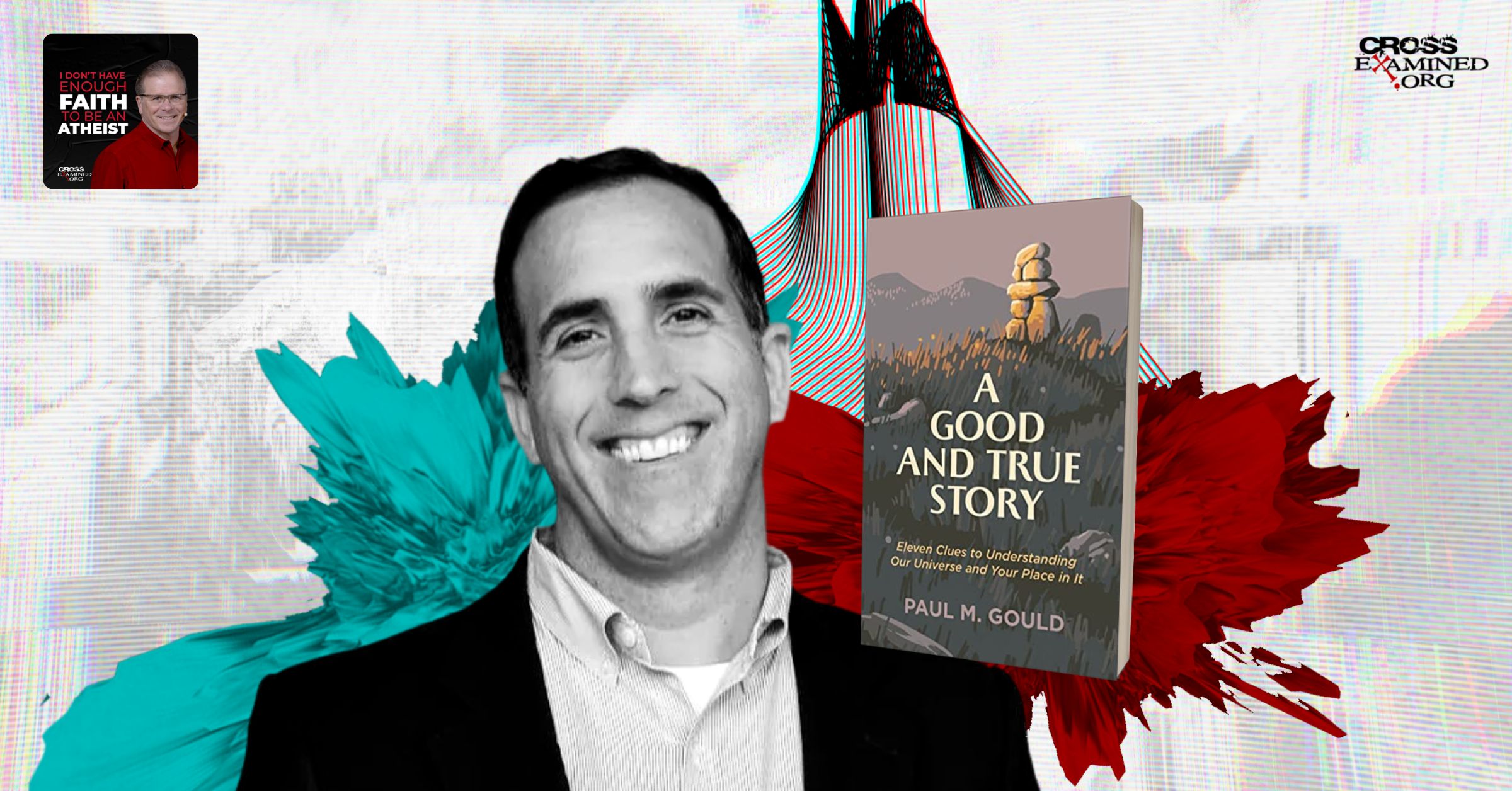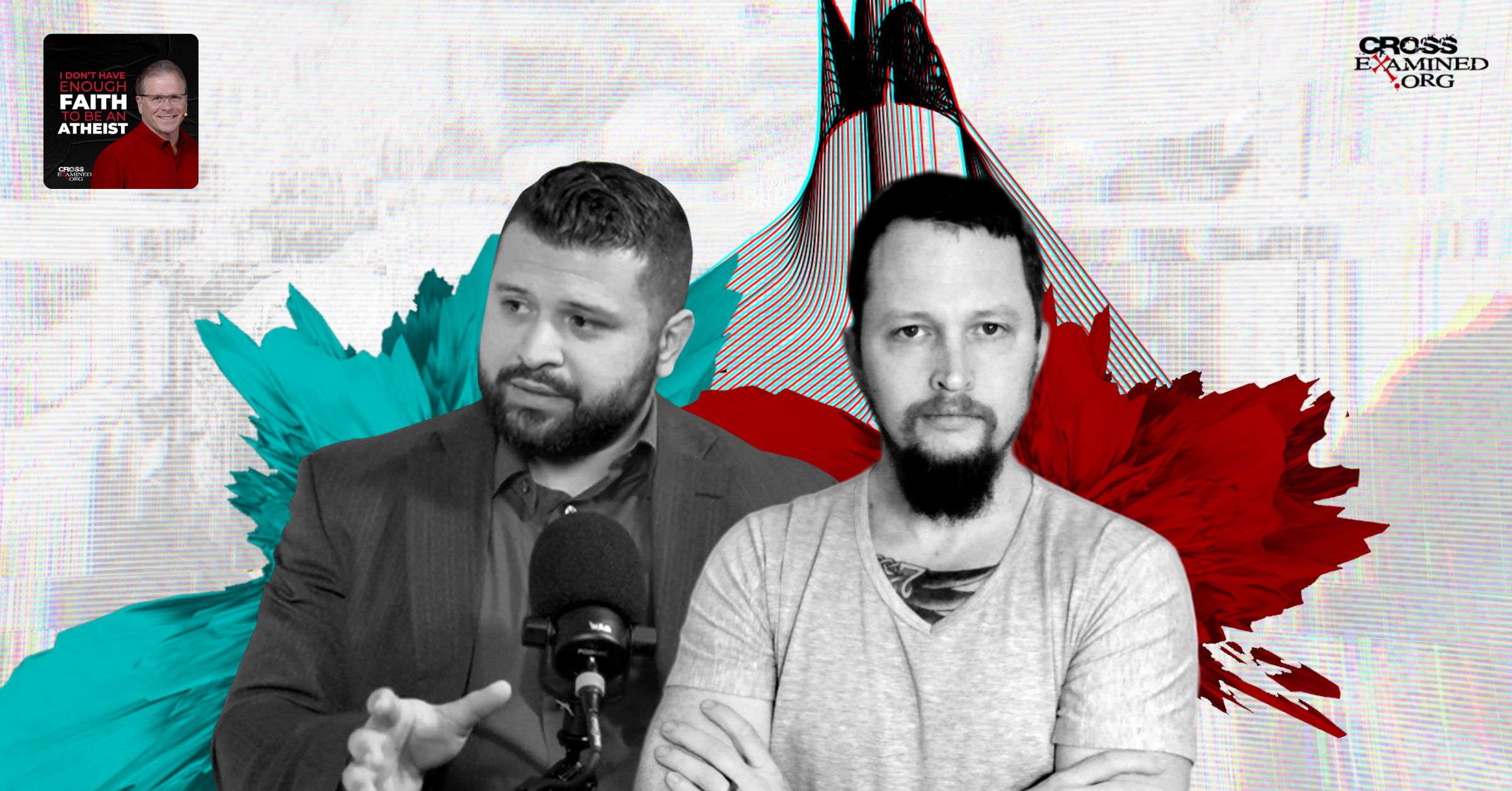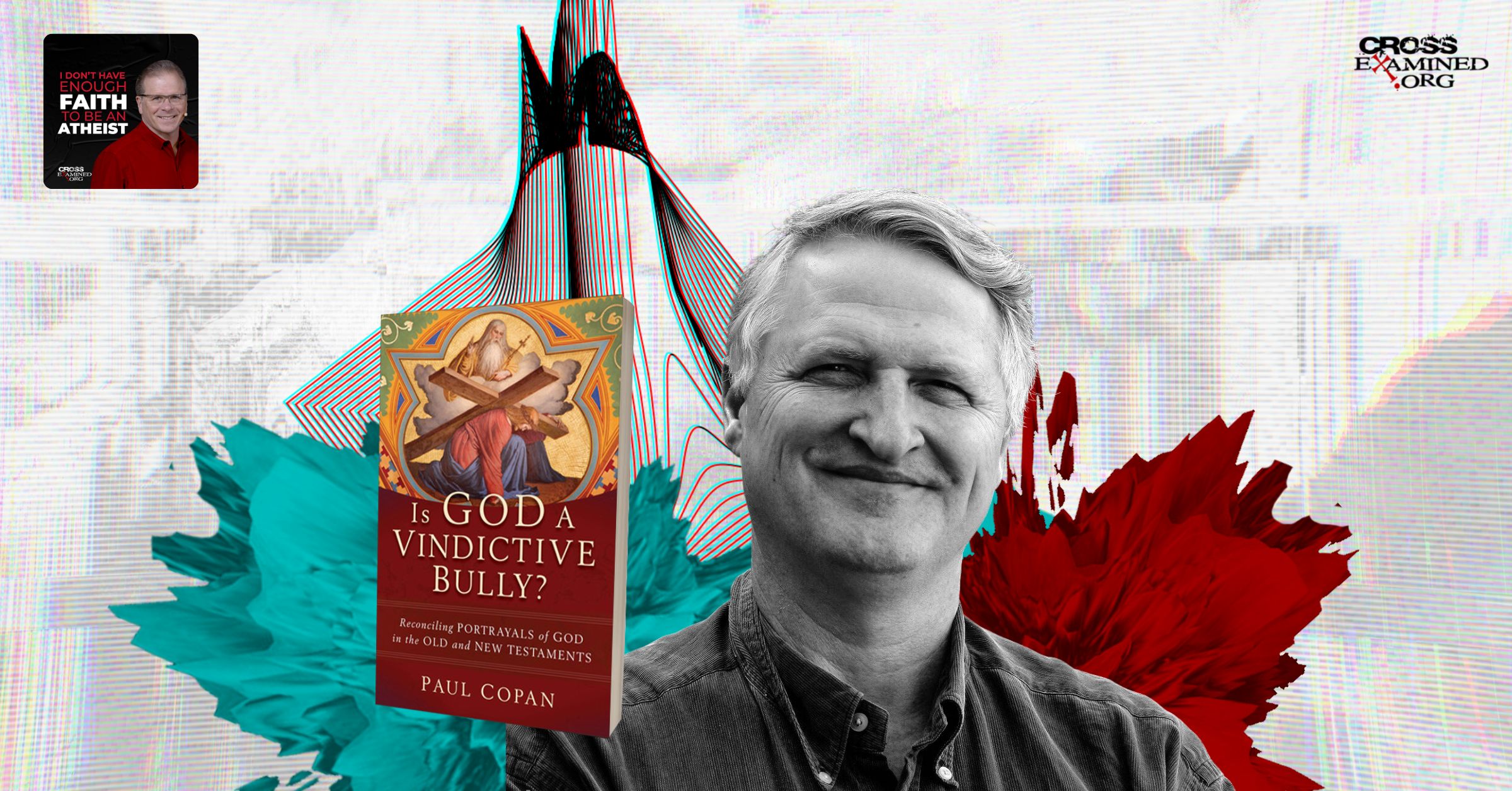On the evening of April 2, 1968, a Muslim bus mechanic was working across the street from St. Mary’s Coptic Church in Zeitoun, a district of Cairo, Egypt. Suddenly, something on the roof of St. Mary’s got his attention: a figure that looked like a young woman. The mechanic pointed it out to a few people nearby who saw the same thing. Concerned that the young lady was about to commit suicide, they called the police. A crowd gathered around the church to watch. Then, after just a few minutes, the woman suddenly vanished. As you can imagine, this got people talking.
At first the police tried to explain things away, saying it was just some light reflecting in a strange way from a street light – but many weren’t persuaded. A week later the female figure appeared on the roof again. The appearance of the woman lasted for a few minutes and then disappeared. Some people began to connect the dots: This is St. Mary’s church. The church is believed to be one of the locations that Jesus’ family stayed during their flight to Egypt. We’re seeing a shining female figure on the roof. Sure this must be the Mother of Jesus!
From there the appearances began to happen more frequently, at times lasting for hours. In some reports, the apparition appeared to be bowing toward the cross atop the church or blessing onlookers on the street below. Some of the faithful who came to tour the holy site reported to be healed of illnesses. The Coptic Orthodox Pope appointed a committee of high-ranking priests and bishops to investigate. On May 4th, the church issued an official statement confirming the apparitions as genuine.
The apparitions were witnessed by the Egyptian President. Some were recorded on film by newspaper photographers and Egyptian television. Police investigations found no apparent explanation. No device was found within a radius of fifteen miles capable of projecting the image, and many photos were taken of the alleged apparition from independent sources. With no alternative explanation and approval from religious and political leaders, the Egyptian government accepted the apparitions as true.
ARE APPARITIONS LIKE RESURRECTION APPEARANCES?
So why am I talking about the Marian apparitions of Zeitoun? It’s because scholars like Dale Allison and Bart Ehrman attempt to parallel these appearances with Jesus’ resurrection appearances. In fact, Allison says that they are in some ways better evidenced and yet he remains agnostic about them. Allison writes:
“Our knowledge of what happened in the days after Good Friday is depressingly sparse over and against our knowledge of what happened in Zeitoun. With respect to the latter, we have interviews with multiple eye-witnesses. We have photographs. We have on-the-spot, as-it-unfolded journalistic reports from religious and irreligious. We have a statement from an investigative committee. We have none of this, by contrast, with respect to Jesus’ resurrection, only a lamentable paucity of evidence and lack of detail at every turn. One wonders how, if we cannot solve the puzzle of Zeitoun, about which we know so much, we can solve the puzzle that is Jesus’ resurrection, about which we know so little.”
Bart Ehrman mostly agrees with Allison. He seemingly points out some inconsistency among resurrection apologists like William Lane Craig, Gary Habermas and Mike Licona, writing:
“it is striking and worth noting that typically believers in one religious tradition often insist on the “evidence” for the miracles that support their views and completely discount the “evidence” for miracles attested in some other religious tradition, even though, at the end of the day, it is the same kind of evidence (for example, eyewitness testimony) and may be of even greater abundance. Protestant apologists interested in “proving” that Jesus was raised from the dead rarely show any interest in applying their finely honed historical talents to the exalted Blessed Virgin Mary”
(How Jesus Became God) Ehrman doesn’t call them out by name, but these three prominent resurrection apologists are all committed Baptists.
When an Emailer asked about the parallel between Marian appearances and Jesus’ post-mortem appearances, Dr. Craig had his colleague Mike Licona respond to the reader’s question. Licona wrote:[i]
“In my debates with Ehrman, when he has raised the topic of Marian apparitions, I have responded that I do not doubt that the recipients saw something. What they saw is what I question. Elliot Miller and Kenneth Samples co-authored the book The Cult of the Virgin: Catholic Mariology and the Apparitions of Mary. In this book, they discuss the three major accounts of Marian apparitions: Lourdes, France; Fatima, Portugal; and Medjugorje, (mud·joo·jor·jee) Croatia. I know Samples personally. He has interviewed several of the seers to whom Mary has appeared in Medjugorje. Although Samples is a Christian whose Protestant theology does not incline him to believe that Mary has appeared to others, he is convinced that these seers have seen a spirit being. In fact, I had an opportunity to inquire further of Samples on the matter. He told me that several of the seers in Medjugorje continued to have visions of Mary. In fact, he was with one of the seers while he was experiencing such a vision, although no one else in the room saw her. Samples told me he asked the seer if Mary had ever spoken to him. The seer said she had, recommending a specific book which the seer was to read. When Samples looked up the title of the book, it was occultic. This led him to believe that a demonic spirit is what is appearing to the seers.”
I’m sure the “it’s the devil” hypothesis will offend Catholics and Orthodox Christians. I’d bet that Ehrman would be content to let them fight it out amongst themselves. Pitting Catholics vs. Protestants is a classic move made by skeptics going back to the Deist Controversy in the 17th and 18th century. Rather than denying the evidence, Licona refers to Samples’ theological argument, which seems to be based on some personal anecdotes and doctrinal inferences.
Even if you’re theologically opposed to the veneration of Mary, this evil spirit hypothesis is probably giving the devil more credit than due. While I’m a settled Protestant, I’m not automatically inclined to say that all Marian apparitions are either delusions, hoaxes or demonic because of my prior theological commitments. With enough evidence, my mind could be changed. But I don’t think Marian apparitions come anywhere near what we have for the resurrection. It’s more of an apples and oranges comparison.
WHAT WOULD BE EVIDENCE OF MARIAN APPARIATIONS?
What would convince me of Marian apparitions? Let’s think about it. Imagine if Mary appeared to a dozen people and ate several meals with them, they touched her hands, and she conversed with them. Now also suppose this group of twelve people were all Protestants, living in a country where converting to Catholicism could result in their arrest, torture, or death. That would move me a bit closer to accepting them.
But there’s a big problem. No one who has seen an apparition of Mary knew Mary before she died. There’s a tradition that she appeared to James the Son of Zebedee in Spain in 40 AD, but the evidence for this tradition is thin and Mary was probably still alive at that time. Those who believe in this appearance claim that she was supernaturally present in two places at once. The first recorded Marian apparition approved by the Catholic church was in 1555. Obviously Mary hasn’t been known by anyone personally for centuries, so there’s always at least the possibility that someone could be hoaxing these people in this proposed scenario.
People laughed when Robert Greg Cavin came up with his “twin brother” theory to explain away the resurrection. But Cavin had to come up with a theory to explain why the disciples thought they saw the risen Jesus, as they knew what Jesus looked like. They had hung out with him for three years.
But some might say that perhaps what the apostles saw was something like what people saw in Zeitoun. Maybe they experienced something like a bright light on a rooftop that they mistook to be Jesus and enthusiasm took its course from there. The problem with that is we can’t say that if we take the gospel accounts seriously. For they report multisensory group appearances extended across 40 days. These appearances involved conversations with Jesus, touching his wounds, and eating fish together. These aren’t the kinds of things you can be mistaken about.
Ehrman and Allison think that these accounts are embellished and unreliable, and so this is why they run this weak parallel. It’s not that they don’t think the disciples experienced appearances of Jesus of some sort. They do. This is because of what Paul tells us in 1 Corinthians 15 that Peter, the Twelve, Paul, James and an unnamed 500 brothers all claimed to have seen the risen Jesus. But what the appearances were like isn’t something Paul goes into detail about. If the best evidence we have for the resurrection is the creed that Paul quotes to the Corinthians, then we’re left with a pretty vague report. Or to use Allison’s words, “depressingly sparse”. Vague appearances that were overinterpreted by the disciples would be consistent with the creed in 1 Corinthians 15.
If we’re going to defend the resurrection, we’re going to need to defend the detailed reports contained in the Gospels are at least what the early disciples reported. But because Licona will only use facts that 90% + of scholars agree upon — which include the likes of Allison and Ehrman — he’s not able to do that. In his big book on the resurrection, Licona writes:
“We may affirm with great confidence that Peter had such an experience in an individual setting, and we will see that the same may be said of an adversary of the church named Paul. We may likewise affirm that there was at least one occasion when a group of Jesus’ followers including “the Twelve” had such an experience. Did other experiences reported by the Gospels occur as well, such as the appearances to the women, Thomas, the Emmaus disciples, and the multiple group appearances reported by the tradition in 1 Corinthians 15:3-7 and John? Where did these experiences occur? Historians may be going beyond what the data warrants in assigning a verdict with much confidence to these questions.”
The Resurrection of Jesus, A New Historiographical Approach, Kindle location 3758
This is why I’m not a fan of the minimal facts approach. If we are willing to say that the appearances to the Emmaus disciples or Thomas are impossible to know historically because that’s what the scholarly consensus allows us to say is a minimal fact, then there’s a massive problem. But if we look at the Gospels closely and more fairly, I think we can know with some confidence that they are scrupulous, habitually honest and close up to the facts. They were not the kind of authors who would be prone to embellish things. Nor are they likely to be schizophrenic authors, showing all these signs of truthful testimony, but suddenly at other times consider themselves free to invent and change facts.
And so it looks like they recorded what was really originally claimed by witnesses about Jesus’ resurrection. And this was the apostles’ claim in the midst of persecution, so it would be unlikely that they were fudging the truth. See my playlist on the reliability of the Gospels for more.
So getting back to Marian apparitions. I don’t think it’s at all impossible to have evidence that has strong weight for Marian claims. Let’s suppose that two Protestants who had previously publicly criticized Marian doctrine both claimed at the same time to have seen a vision of a woman claiming to be Mary telling them that she was taken bodily into heaven. Neither had a prior history of mental illness. They destroyed their own Protestant careers and endangered their lives by claiming this.
Furthermore, suppose the woman in question instructed them to call each other and ask each other, “Did you have any strange experience in the last 24 hours?” And they independently did this. That would be evidence of the Marian claims, but it wouldn’t exactly be an analogy to Jesus’ appearances on earth. It would perhaps be more analogous to the conversion of Paul and James. Oddly enough, Dale Allison says nothing short of Mary appearing to him would convince him. I don’t think our standards need to be that absurdly high.
This whole Marian apparition analogy just doesn’t work when one takes a more maximal data approach to the Gospels. I might not be able to explain all Marian apparitions, but they’re not the same as the resurrection appearances in the Gospels. At best they make me say “huh. Maybe the world is a weirder place than I thought, and I don’t really know what to make of this.” But because there seems to be some vagueness about what these apparitions mean or where they originate from I don’t feel super inclined to believe them.
Footnotes:
[i] https://www.reasonablefaith.org/writings/question-answer/appearances-of-mary-and-jesus-resurrection-appearances
Recommended resources related to the topic:
Can All Religions Be True? mp3 by Frank Turek
When Reason Isn’t the Reason for Unbelief by Dr. Frank Turek DVD and Mp4
____________________________________________________________________________________________________________________________________________________
Erik is a Reasonable Faith Chapter Director located in Cedar Rapids, Iowa. He’s a former freelance baseball writer and the co-owner of a vintage and handmade decor business with his wife, Dawn. He is passionate about the intersection of apologetics and evangelism.
Original Blog Source: https://bit.ly/3Vs9Z0Y










